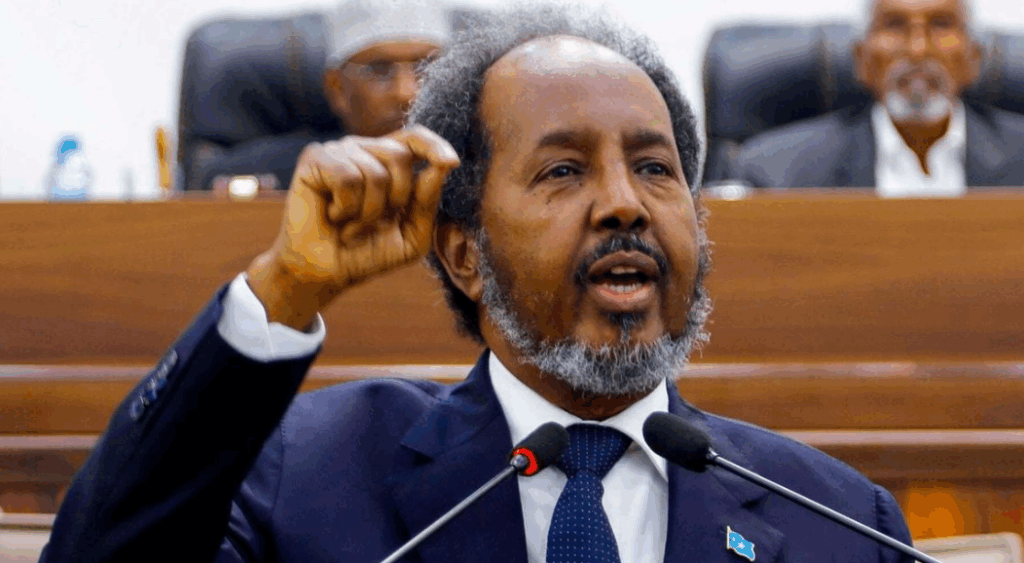Somalia President Hassan Sheikh Mohamud has launched an active campaign to win backing from the semi-autonomous region of Jubaland as the federal government pursues controversial plans to extend political terms and reshape electoral timelines.
The Jubilee of Jubaland: A Key Piece in the Federal Puzzle
In recent weeks, Mohamud has engaged directly with Jubaland leaders, including President Ahmed Mohamed Islam Madobe, signalling the region’s pivotal role in national politics.
Mediation by the United Arab Emirates and meetings in Kismayo underline the critical nature of this outreach.
The federal government reportedly offered Jubaland a two-year term extension for Madobe’s regional presidency in exchange for alignment with Mogadishu’s push for one-person-one-vote (1P1V) elections.
Somalia President Hassan Sheikh Mohamud Term Extensions and Electoral Reform
Mohamud’s administration has advocated extending the mandates of regional and federal leaders ahead of the nationwide transition to direct elections.
However, Jubaland has rejected the proposal, denouncing it as a threat to regional autonomy and accusing Mogadishu of centralising power.
Analysts warn this standoff may undermine the federal model and jeopardise political stability.

The Stakes: Stability, Elections and National Unity
Somalia’s fragile federal system and security environment make the outcome of the Jubaland negotiations especially significant.
A breakdown in talks could escalate conflict, hamper efforts against militant groups like Al‑Shabaab, and jeopardise the country’s electoral roadmap.
With Somalia President Hassan Sheikh Mohamud term reaching its end in 2026, the push for term extensions and election reform has stirred opposition alliances and regional mistrust.
A Delicate Balance of Power
The success of Somalia President Hassan Sheikh Mohamud strategy hinges on gaining Jubaland’s support without triggering a political rupture.
Should the region resist, further institutional conflict and regional fragmentation may follow.
As Somalia barreled toward critical elections and deeper federal reform, the fate of Jubaland’s cooperation may well determine whether the country moves toward consensus or division.


